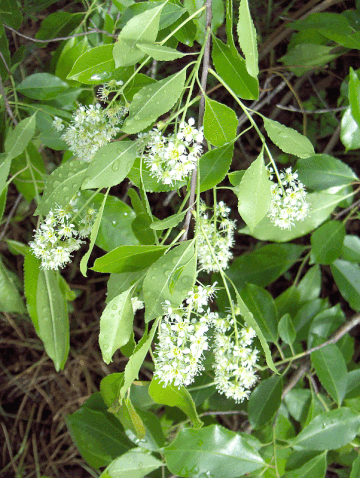Ho sabíeu?
Podeu fer doble clic en una paraula per a buscar-la a TermGallery.
Podeu fer doble clic en una paraula per a buscar-la a TermGallery.
Significats de mock orange en anglès

Small flowering evergreen tree of southern United States.
portuguès
laranja-de-osage Small shrubby deciduous yellowwood tree of south central United States having spines, glossy dark green leaves and an inedible fruit that resembles an orange; its hard orange-colored wood used for bows by Native Americans; frequently planted as boundary hedge.
Veure'n mésespanyol
syringa Large hardy shrub with showy and strongly fragrant creamy-white flowers in short terminal racemes.
Shrubby thorny deciduous tree of southeastern United States with white flowers and small black drupaceous fruit.
Sinònims
Examples for "syringa"
Examples for "syringa"
1
Her blue dress was hung over a syringa bush behind the cabin.
2
A young girl stood on the gravel-path, near his favourite syringa arbour.
3
He sat sheltered in the heart of the great syringa bush.
4
No, it was not she-only the syringa breathing in the window.
5
He always made them by the gate, next to the big syringa bush.
Ús de mock orange en anglès
1
There were fig-trees, persimmons, mock orange, and shrubs ablaze with blossoms.
2
This is true of grapes, quince, hybrid perpetual roses, shrubby hibiscus, crape myrtle, mock orange, hydrangea (paniculata), and others.
3
The sweet smell of mallow and mock orange flowers wafted through the byways, perfuming the cobblestone lanes sweeter than a baby's breath.
4
In the foyer and dining room and kitchen, the air swims with the scent of phantom flowers, shimmering with sweet, heavy mock orange.
5
The sense of peace the poet feels in her garden with its mock orange and sky-blue delphiniums is warming, but her fire has gone.
6
Mock orange is not herbaceous, because it has a woody stem.
7
We take our choice today between finding deer-brush and digging for amole, because the mock oranges aren't ripe enough to be nice and soapy yet.
8
The Carpenteria is nearly related to the Mock Orange (Philadelphus), grows about 10 feet in height, with lithe and slender branches, and light gray leaves.

